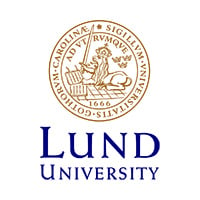Blue Transition – How to make my region climate resilient
Position Details (PhD Program)
We seek a PhD student for the research project “Blue Transition – How to make my region climate resilient”. The project is financed by the EU Interreg North Sea Region and Sweden Water Research. The project team consists of experts in groundwater resources and applied geophysics, and is a collaboration between universities, government agencies, water supply companies, river water councils, etc. The PhD student will work with monitoring of hydrogeological processes in the ground through geoelectrical measurements, in natural ground and in connection with MAR (managed aquifer recharge).
The investigation area will be in the south of Sweden, in particular in the Vomb Trough area and in the Bolmen area. In both areas, a monitoring system will be installed which will run for several years. This will be accompanied with geophysical measurements in adjacent areas, which may include ground based, air- and water-borne geophysical data acquisition. The data should then also be used to develop resp. improve the hydrogeological model. In parallel to the geophysical measurements, also hydrogeological, geochemical and microbiological investigations will be made to provide reference data to interpret the geophysical properties. Furthermore supporting laboratory investigations are conceivable.
Work tasks
As a PhD student you will work on testing and optimising geophysical methods of electrical resistivity tomography (ERT) and induced polarisation tomography (IPT) combined as a tool for monitoring hydrogeological properties and processes. The work will chiefly include field tests, data collection techniques, signal processing, numerical modeling, visualisation and analysis of the results. Furthermore to present results in written and oral form in academic contexts as well as to the industry and stakeholders.
The main duties of doctoral students are to devote themselves to their research studies, which include both participation in research projects and third cycle courses. Duties may also include participation in teaching and other work at the department up to a maximum of 20% of the time.
Admission requirements
A person meets the general admission requirements for third-cycle courses and study programmes if the applicant:
- has been awarded a second-cycle qualification, or
- has satisfied the requirements for courses comprising at least 240 credits of which at least 60 credits were awarded in the second cycle, or
- has acquired substantially equivalent knowledge in some other way in Sweden or abroad.
A person meets the specific admission requirements for third cycle studies in Engineering Geology if the applicant has:
- At least 45 second-cycle credits of relevance to the field of the third cycle programme.
Other requirements:
- Good skills of English, spoken and written.
- A good knowledge of physics, mathematics and statistics.
- A base in hydrogeology or geophysics.
- Demonstrated knowledge of and experience in computer programming.
- Documented practical skills such as the ability to plan and carry out data collection in the field.
- Good communication skills with ability to write reports/publications and to disseminate results.
- Collaboration skills are a necessity to interact with the other participants in the research teams as well as organisations and industry taking part in the cooperation.
- Valid driving license is necessary for carrying out the field experiments.
Other merits
- A background in both hydrogeology and geophysics.
- Knowledge of geology, GIS and inorganic chemistry.
- Skills in written and oral communication in Swedish (to understand background material and interact with collaboration partners).
Assessment criteria
Selection for third-cycle studies is based on the student’s potential to profit from such studies. The assessment of potential is made primarily on the basis of academic results from the first and second cycle. Special attention is paid to the following:
- Knowledge and skills relevant for the thesis and the thesis subject.
- Ability to work independently and ability to formulate and solve scientific problems.
- Skills in written and oral communication.
- Other experience relevant to third-cycle studies, e.g. professional experience.
Consideration will also be given to drive and independence as well as how the applicant’s skills and experience are deemed to match the capacity needed to succeed with postgraduate education.
Terms of employment
Only those admitted to postgraduate education may be employed as a doctoral student. Postgraduate education is four years of full-time studies. If teaching and other departmental work is included employment is extended correspondingly, up to a maximum of 5 years (i.e. max. 20%). Rules regarding the appointment of postgraduate students are regulated in the Higher Education Ordinance (1993:100), chapter 5, 1-7 §§.
Instructions for application
Applications should be written in English. Applications must include a letter of motivation as to why you are interested in the position, and how the research project matches your interests and educational background. The application must also include a CV, diploma or equivalent, and documenation of other background that you wish to refer to (copies of diplomas, contact information for references, recommendation letters, etc.). You are also asked to answer the selection questions.



 Lund University
Lund University 